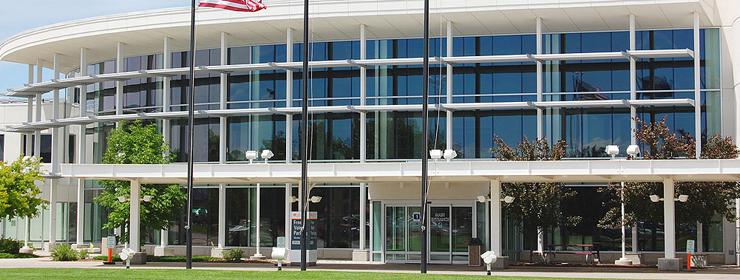
Regional West Physicians Clinic-Pediatrics Warns of Early Respiratory Syncytial Virus (RSV) Season
SCOTTSBLUFF, Neb., ― Typically, the peak season for Respiratory Syncytial Virus (RSV) starts in the Nebraska panhandle around February and continues into March.
Over the last couple of years however, Cynthia Guerue, MD, FAAP, a pediatrician with Regional West Physicians Clinic-Pediatrics, has seen the onset of the season begin as early as October as the virus moves to the Midwest from the coasts.
“RSV is a common virus among pediatric patients,” Dr. Guerue said. “Some studies indicate that almost all two-year-olds have had RSV. Not all get a severe illness with it. With some it appears as just a typical cold, but other kids can get really sick with it.”
RSV causes inflammation of the bronchioles and creates mucous that is sometimes difficult to expel. Children most at risk are those under six months old who have smaller airways and are unable to get the mucous out. Other high-risk populations are premature babies, any babies who have had a cardiovascular abnormality or surgery, children with asthma, and infants with a family history of asthma.
“Once they get a little bit older and their airways get bigger, children tend to not have as much of an issue,” Dr. Guerue said, adding that newborns don’t yet know how to breathe through their mouth, so when their nose gets plugged up, they are unable to compensate.
Parents should look for signs of difficulty breathing such as when the chest may appear to sink in just below the rib cage or in the breastbone area of the chest near the collarbone.
“They’ll have a lot of ‘noisy’ breathing,” Dr. Guerue said. “Many people refer to it as wheezing or raspy breathing. That’s the air flow trying to get around the mucous.”
When a child starts breathing 50 to 60 times per minute, Dr. Guerue said, he or she is working too hard and should be evaluated by a professional. She said typically days four, five, and six of the illness are the most difficult. If the child has any skin changes, such as a ‘dusky’ look, he or she should be evaluated.
For children with RSV, Dr. Guerue recommends monitoring their fever with Tylenol® or ibuprofen if they’re six months of age or older, keeping their airways clear through suctioning of the mucous, and keeping them hydrated. Dr. Guerue said she doesn’t recommend a lot of milk, especially with babies, because of the mucous buildup, but she does recommend Pedialyte. Staying hydrated helps keep the mucous thinner and enables the child to cough and expel it more effectively.
“Using a cool-mist humidifier is also very helpful,” Dr. Guerue said. “You can take them into the bathroom during a shower and that will help work some of that mucous out. Also, I can’t emphasize suctioning enough. Babies can’t tell you they’ve got that junk in there, so you have to stay on top and suction it out.”
Dr. Guerue said the problem with RSV arriving earlier is that it’s now here at the same time we typically see seasonal rhinovirus and influenza. With the change, patients may now see all three viruses at once or one right after another, making it more difficult to recover because the child may already be weak recovering from the first illness.
For questions or to schedule an appointment, call Regional West Physicians Clinic-Pediatrics at 308-630-1811.
Regional West Health Services in Scottsbluff, Neb., is the parent company of Regional West Medical Center, a 188-bed regional referral center and the only Level II Trauma Center in Nebraska west of Kearney. As the region’s only tertiary referral medical center, Regional West offers care that spans more than 32 medical specialties provided by over 28 physician clinics. With nearly 300 in-network providers and approximately 2,000 staff members, Regional West provides comprehensive and innovative health care services for the people of western Nebraska and the neighboring states of Colorado, South Dakota, and Wyoming.